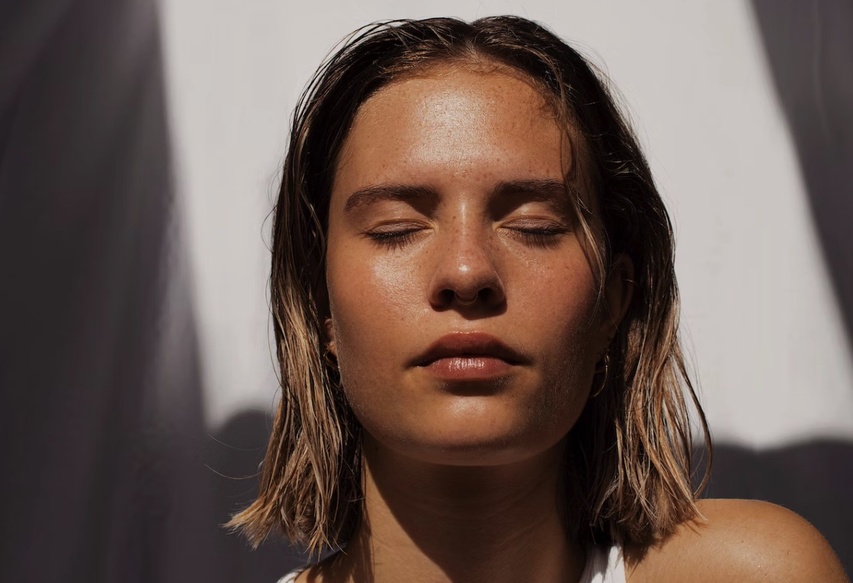Frequently asked questions about acne

Key Points
- Acne is caused by excess oil, clogged pores, inflammation, and hormones—treatments must match severity, from OTC products to prescriptions.
- Prevention includes a solid skincare routine, clean diet, and stress management, while popping pimples and harsh products should be avoided.
- Consistency is crucial, and tools like the MDacne app can guide personalized, long-term acne care across skin types and tones.
Acne is one of the most common skin concerns out there, but that doesn’t make it any less frustrating to deal with. Questions abound—what causes it, how to prevent it, and most importantly, how to treat it effectively. If you’ve got acne-related questions, we’ve got answers. Let’s dive in and clear things up (literally)!
Q: What Causes Acne?
A: Acne is caused by a mix of factors, including excess oil production, clogged pores, bacteria, inflammation, and hormonal changes. Hormonal shifts during puberty, menstruation, or pregnancy can trigger it, as can stress, certain medications, and diet. Genetics? Yep, blame that too.
Q: How Can I Prevent Acne?
A: While there’s no magic wand to banish breakouts forever, a solid skincare routine can help.
- Wash your face twice a day with a gentle cleanser.
- Use non-comedogenic products to avoid clogging pores.
- Keep your hands off your face (we see you picking!).
- Eat clean, manage stress, and get enough beauty sleep.
Q: What’s the Best Way to Treat Acne?
A: Acne isn’t one-size-fits-all, so treatment depends on the severity.
- Mild acne: Look for over-the-counter products with benzoyl peroxide or salicylic acid. Check out the MDacne app! It can help analyze your acne and suggest the best customized treatment.
- Moderate to severe acne: Prescription treatments like retinoids, antibiotics, or hormonal therapies might be your best bet.
Q: Can Diet Really Affect Acne?
A: The jury’s still out, but some evidence links acne to high-glycemic foods, dairy, and sugary treats. A diet rich in fruits, veggies, and whole grains might help. But don’t expect to trade pizza for perfect skin overnight—diet is just one piece of the puzzle. Check out this article for more info on acne and diet.
Q: Is It Okay to Pop a Pimple?
A: Hard no. Popping pimples can lead to scarring, infections, and even more breakouts. Instead, use a spot treatment or slap on a pimple patch to keep your hands busy and your skin happy.
Q: Can Stress Cause Acne?
A: Stress might not directly cause acne, but it sure doesn’t help. It can increase oil production and inflammation, making breakouts worse. Take a yoga class, meditate, or just take a deep breath—it’ll help your skin (and your sanity).
Q: How Long Does It Take for Acne to Clear Up?
A: Patience is key. Mild acne might improve in a few weeks, but moderate to severe cases can take months. Consistency with your skincare routine is crucial.
Q: Can Acne Scars Be Treated?
A: Absolutely. Chemical peels, laser treatments, and microneedling are popular options. Consult a dermatologist to find the best treatment for your skin type.
Q: Can Acne Appear on Other Body Parts?
A: Yep, acne isn’t just a face thing. It can pop up on your chest, back, shoulders, and even your butt. Treatment options are similar to facial acne, so stock up on body-friendly products with benzoyl peroxide or salicylic acid.
Q: Does Makeup Cause Acne?
A: Some makeup can clog pores, especially if it’s oil-based. Look for non-comedogenic and oil-free formulas to avoid breakouts. And always remove your makeup before bed—your skin will thank you.
Q: Are Natural Remedies Effective for Acne?
A: Some natural remedies can help. Tea tree oil, aloe vera, and green tea extract have acne-fighting properties, but they’re not magic bullets. Use them as a supplement to your skincare routine, not a replacement.
Q: Can Acne Be a Sign of a More Serious Health Issue?
A: In some cases, yes. Persistent or severe acne can indicate hormonal imbalances like PCOS or thyroid issues. If you’re concerned, consult a healthcare provider.
Q: Does Sunscreen Make Acne Worse?
A: Not if you choose the right kind. Go for non-comedogenic, oil-free sunscreens to protect your skin without clogging pores.
Q: How Can I Prevent Acne Scars?
A: Avoid picking or popping pimples, and treat acne early to minimize damage. Sunscreen is also crucial to prevent scars from darkening.
Q: Can Acne Return After Clearing Up?
A: Unfortunately, yes. Acne is a chronic condition, but consistent skincare and maintenance can keep it at bay.
Q: Is It Necessary to See a Dermatologist for Acne?
A: Mild acne might not require a visit, but if your breakouts are severe or persistent, a dermatologist can provide customized treatment options. The MDacne app can help determine the best treatment plan for your specific type of acne.
Q: How Does Lifestyle Impact Acne?
A: A healthy lifestyle can make a world of difference. Eat a balanced diet, exercise regularly, manage stress, and get enough sleep to keep your skin (and body) in check.
Q: What’s the Deal with Acne on Darker Skin Tones?
A: Acne scars can be more prominent on darker skin tones, but treatments like laser therapy and chemical peels can help. Consult a dermatologist experienced in treating darker skin to ensure the best results.
Final Thoughts
Acne is a tricky but manageable condition. From understanding its causes to finding the right treatments, the journey to clear skin takes time and effort. Whether you’re tackling acne on your own or seeking professional help, the key is consistency and patience.
More info:
To find the right acne treatments for your unique skin, take the free skin assessment by clicking here.
To find the right acne treatments for your unique skin, take the free skin assessment by clicking here.



